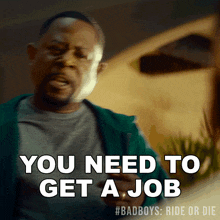After you graduate high school, it's almost expected that you go to college. But, what if you're not sure if you want to go to college? What happens then? How do you figure out your next step?
Let us slide into your dms 🥰
Get notified of top trending articles like this one every week! (we won't spam you)Ask Yourself Why
The first question you should ask yourself is "why am I hesitant to go to college?"
There are a number of reasons that you could be feeling like this, including familial pressure, anxiety about furthering your education, or that you just simply don't like the idea of going to college. For some people, college is the best option, but for others, it's not.

Take the Quiz: What Type of Notes Should I Take?
Discover the best note-taking method for your learning style!
Take A Gap Year (Or Two)
A trend that has become increasingly popular among recent high school grads over the past few years is taking a gap year.
This means instead of going to school, you take some time and do volunteer work or get a job. Instead of sitting in a classroom, you make the world into a classroom and gain life experience.
Gap years are great because they allow you to see what all is out there for you, and they give you the opportunity to have some freedom and let you feel like an adult.
Evaluate Your Priorities
Knowing what's important to you is one of the most basic principles to succeeding in anything. Find a quiet place where you can sit and think for awhile. What is most important to you?
Is it seeing the world, maybe starting a career in a certain field, or finding a way to make a difference in your community?
Once you know what your priorities are, think about what steps you need to take to make your dreams a reality.
Depending on your intended field, you may need a degree, but for others, previous job and life experience can often be enough to help you get the career that you want.
If you're not sure what kind of job or career you would enjoy, take an online career assessment. These tests go through your interests and abilities and match you to careers that would be a good fit for you.
Here are a couple of Career Tests to get you started:
Consider Other Options
There are so many options out there for those who decide to forgo college.
You can go to a trade school and learn how to be a plumber, electrician, or a technician for heating and air conditioning systems or refrigerators. You could also find an entry-level job and work your way up.
There are also a lot of people that work for a little while, and use the money from that job to start their own business.
But if you just can't shake the idea of going to college, you can always take a few classes at your local junior or community college. These schools are designed to allow you more freedom, while still giving you an education.
Often people don't realize that you can do a lot of other careers without a degree, including journalism, marketing, teaching piano or dance, working in an office, art, and music. In fact, many of the great people we hold in high esteem either never went to college or never finished. These people include: Anna Wintour, Rachel Ray, Leonardo DiCaprio, and many others.

Talk To Someone You Trust
Talk to someone you trust about your dilemma. This could be a guidance counselor, a parent, a friend, or someone else. Tell them what your thoughts are and how you feel about all of it. Be honest.
Talking through things is a great way to help your brain process. Plus, whoever you decide to talk to may have some great ideas about how to help you.
Make A Pro/Con List
It may sound silly, but start a pro/con list for going to college, and include anything you think might be relevant to your decision. This should include things like the cost of tuition, making friends, family expectations, etc.
Once you're finished, reflect back on what you wrote. Does your list have more pros or cons? Vice versa?
Do What's Best For You
Ultimately, the decision to go to college or not to go to college is yours to make. No one else can make that decision for you, because it is your life.
Not having a degree doesn't make you any less intelligent or educated than someone who does. It means that you chose a different learning path, one that was right for you.
Deciding to get your degree also isn't a bad thing. Everyone has to choose the path that works for them, even if it's not what is traditionally accepted.

It's okay to look at the unknown and be overwhelmed by it. I felt that same way when I graduated from high school. Although I had an idea of what I wanted to be, the thought of stepping out into the world was terrifying. It took awhile before I found my bearings.
In the grand scheme of things, what matters is not if you went to college, but whether you are a kind, loving person who learns from life itself.









.jpeg)







